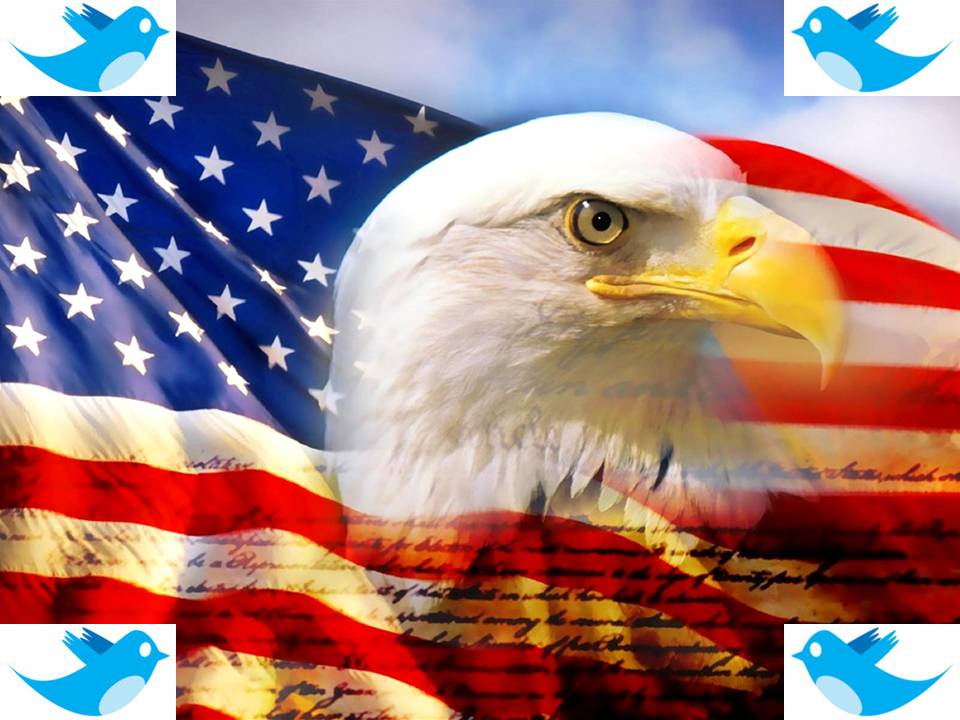
One of the things that I’ve been following as part of monitoring for major trends that impact corporate reputation (I do corporate PR, remember?), is the so called ‘fall of brand America,’ in lieu of the perceptual waning based in part on Bush's years in office, as well as the economic crisis leading to a global downturn that followed. The trend is not new, but looking at America as a brand is something I haven’t done before seeing it through the lens of public relations and communications.
I will note, I always looked up to America as an image and pillar of democracy, opportunity, and freedom; after all I am a naturalized citizen, who had to survive communism to get here (born in Moscow).
It’s no secret that the Bush years wreaked havoc on the image of America, both at home and abroad, so what changed? Is it possible to reverse at all, or is the damage too long lasting (two wars going on, an endless recession, etc.)… My thinking is a resounding yes; like the old Spanish phrase about food, a little bit often (shouldn’t that just become Twitter’s motto too?!).
In my opinion, first step was electing Barack Obama… love or hate him and his policies, the 180 degree change to the Bush tenure was needed to start a process of global reconciliation on the right foot… moreover, I credit the Obama campaign for bringing twitter and social networking into the fray of politics (sorry Mr. Dean), a necessary final step in its full democratization for the masses.
As Victoria Esser recently wrote, in her fantastic byline for Politico:
“Is social media diplomatic window dressing or can the U.S. Twitter its way into the hearts and minds of other countries? While the answer is somewhere in between, the U.S. cannot afford to wait while these channels are perfected in order to direct them in service of President Barack Obama’s priority of renewing America’s global leadership. Indeed, Mr. Obama can use the themes and technologies that helped him generate huge grass-roots support in his presidential campaign to build support for America on the world stage.”
Mrs. Esser continues to source Pew Global Attitudes Survey finding broad anti-Americanism around the world, with the image of the United States declining in 26 of 33 countries since 2002; while characterizing the U.S. image as ‘abysmal’ in most Muslim countries in the Middle East and Asia… so far down has the image fallen that not even the newly elected government could make a dent in the negativity (read: Poll: Obama Not Helping U.S. Image In Iran)
So what’s step two? For me, step two came not during the watered down ‘social media town halls’ from the Obama administration at the onset of his presidency, nor from the YouTube/CNN debates earlier in the campaigns. Rather, it was the election in Iran, and the social media/citizen journalism combo, into what I call open source protesting.
The telling sign of this was the #iranelection crowdsourced outrage over the election results (read: Staggering #IranElection Stats: 2 Million+ Total Tweets), where the world joined hands where the president could not… I’m not blaming Obama at all, diplomacy is hard and not black/white, but I will say that he could have said what he said louder and faster.
By following the conversation on Twitter, we saw American citizens showcasing US ideals in 140 characters, with RTs, links, photos and genuine care for the cause of freedom… without Twitter it would not come to be, and the Iranians would not be able to see the willingness to collaborate and unite in cause, as long as that cause is just. Because of the flat world and the access to open (somewhat, I'm looking at you China, Iran, et al) communication platforms, the 'face' of a nation is no longer just based on its leaders, but also the interaction of it's citizens.
Of course, Twitter never was and never will be the tell all solution to everything, and I'm not claiming it to be either. I just think that without it, there would be no such level of interaction... a solid building block. I agree with Mrs. Esser, when she concludes her poignantly intellectual analysis of the situation with:
“There are limits to this virtual dialogue, and so it must be continued on the ground with engagement in “retail” public diplomacy — the critical dialogue with political leaders, opposition, minority groups and others needed to demonstrate that the U.S. is willing to come to the table.”
I could not have said it better myself, so I won’t. I will agree though, a ton of work is yet to be done, mainly on the ground, because even the most solid of foundation is not enough… now it’s time to build.
To be sure, however romantic about the topic I may sound, I am NOT endorsing the notion that Twitter founders should receive a Nobel Peace Prize for rescheduling planned maintenance… regardless of that though, didn’t Twitter save Brand America?
If not yet, then it will… just watch.

